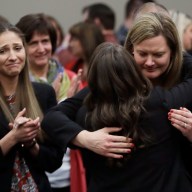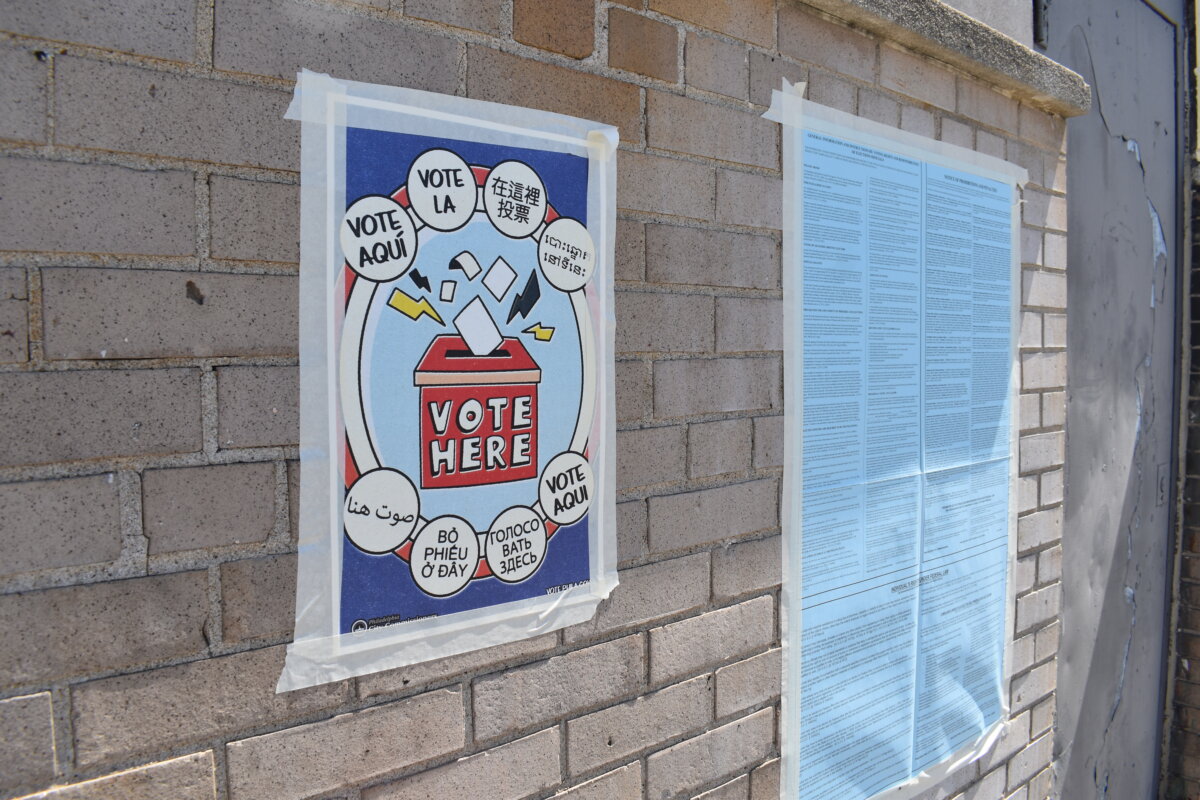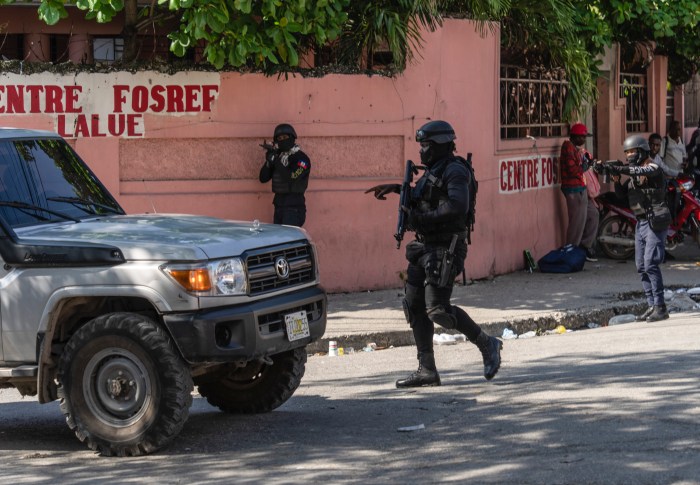PETIONVILLE, Haiti – I was sitting on my bed surfing the Internet when I noticed silence, followed by a weird groaning sound. I figured it was a passing water truck. But funny, I thought – sounds more like an earthquake.
The house started shaking. Then it really started shaking. I walked out of my room and kneeled slowly to the undulating floor, laptop in hand, as windows, two years’ worth of Haitian art and a picture of my grandfather smashed around me.
I was not hurt. Not only that, the staircase in the house where I live and work, while completely invisible behind a choking white cloud of drywall and dust, was still standing. I yelled out for Evens, the AP’s all-in-one driver/translator/bodyguard here.
To my shock and delight he answered: “Let’s go.”
I went. Barefoot, over rocks, past a crack running the height of the house, out to the street in my underwear, first to look for a telephone to call in what had happened, then brave any aftershocks and return to the house for a chance at shoes and pants.
It’s been nearly impossible to get an Internet or phone signal since then. So consider it my pure but well-founded speculation that many reports of the destruction of Port-au-Prince include a phrase like, “Haiti is no stranger to suffering.”
In the wake of Tuesday’s magnitude-7 earthquake, which levelled much of the Haitian capital and left perhaps tens of thousands dead, it is both an understatement and an overstatement.
Sure, Haiti is no stranger to suffering: For most people here, tragedy is more common than lunch. And yet this nation has never faced anything on such a cataclysmic scale.
Less than two years ago, the country’s fourth-largest city, Gonaives, was left underwater by a limping tropical storm that would have barely disrupted traffic in Miami.
As our photographer and I came in on a raft with Brazilian soldiers, we passed bodies floating in the street. It was the third of four named storms to hit the country in the space of a month.
Barely two months later, a school fell down in the slum-and-mansion suburb of Petionville, and about 100 people died. The first sign was a noise that sounded like sirens coming from over the hill. They were the voices of screaming parents.
Here, passing a dead body in the streets after yet another storm or political coup merits little more than a passing comment about how properly the face has been covered.
Now we have to try to understand what it means that such a long history of pain pales next to the devastation wrought by 15 to 20 seconds of shaking one January afternoon.
Behind the now-bisected AP house is the same slum where that ill-fated school entered our nightmares two years ago. This time, every flimsy building had caved. The white cloud scratching my lungs hung across the horizon. And the screams were a screeching thunder.
The city is a ruin. Fuel, food and water are running in short supply. Mothers have lost their children. Children have lost their families. Entire neighbourhoods are sleeping in the streets. People walk miles up and down mountains, carrying everything they own, with no real place to go.
But here is what is new: You have perhaps seen the pictures of the national palace smashed into a lurching heap over the grassy Champs de Mars. Or of the collapsed twin spires of the Notre Dame d’Haiti cathedral complex, which claimed the life of the archbishop. Or of the collapsed parliament where the senate president remained trapped Wednesday.
Imagine if nearly all the institutions in your life – flawed, but still the only ones – disappeared, all at once.
In a life where the next meal is uncertain, where the next rain may claim your home, where the next election may happen or not – where that is the normal. Think of having those institutions smashed all around you.
At the very moment when you have lost someone, perhaps many people, you loved.
The AP house, a footnote in the devastation, is an uninhabitable mess on the verge of collapse. An entire city is screaming for help. I’ve finally logged onto the Internet long enough to see that some of those calls will be answered, at least in some way.
But what will happen after that help, like so much here, has vanished? Will there be an after?
EDITOR’S NOTE – Jonathan M. Katz is The Associated Press’ correspondent in Port-au-Prince, Haiti. He filed this first-person account of the moments after Tuesday’s earthquake, which has redefined tragedy for a nation that knows it all too well.
















